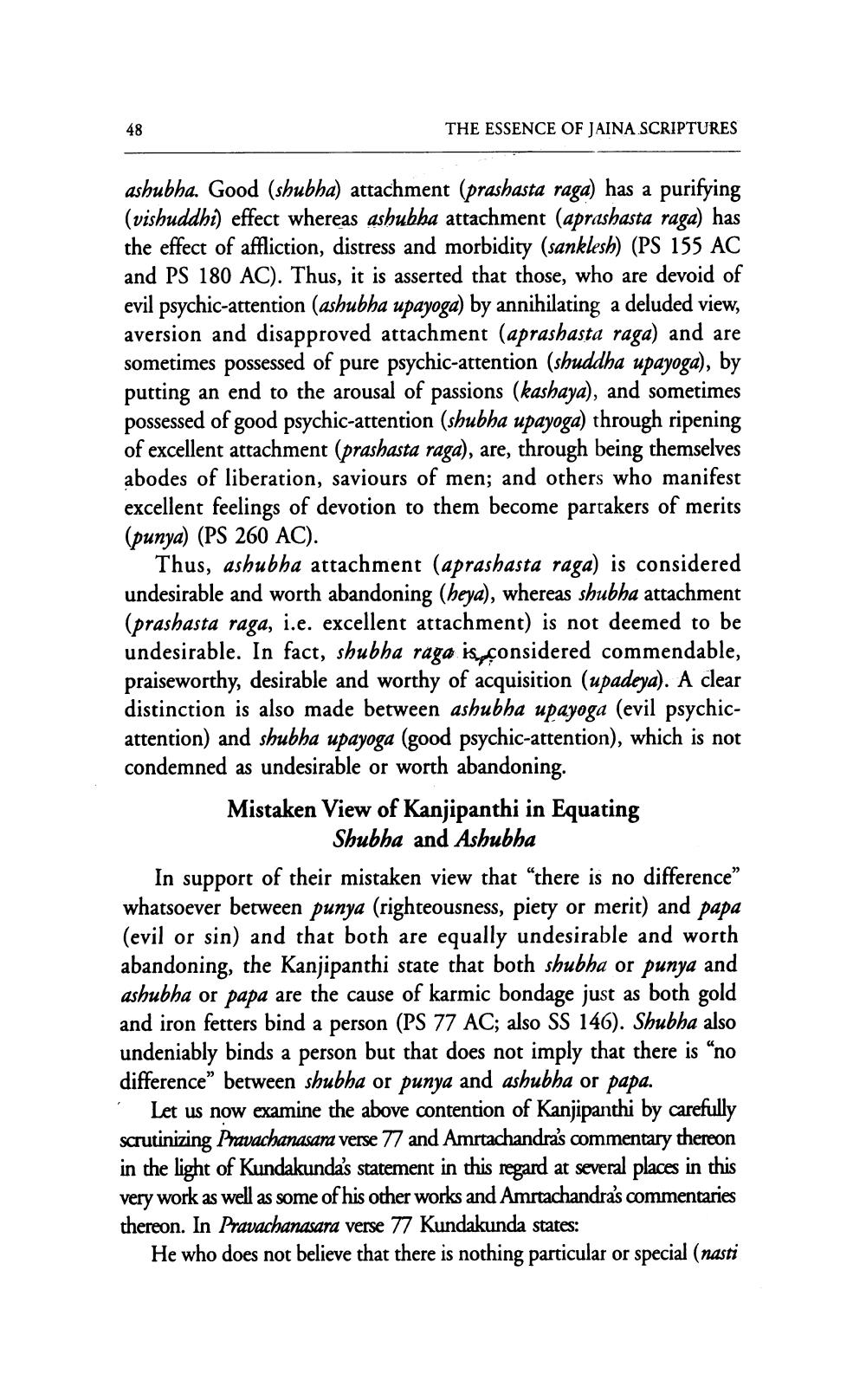________________
48
THE ESSENCE OF JAINA SCRIPTURES
ashubha. Good (shubha) attachment (prashasta raga) has a purifying (vishuddhi) effect whereas ashubha attachment (aprashasta raga) has the effect of affliction, distress and morbidity (sanklesh) (PS 155 AC and PS 180 AC). Thus, it is asserted that those, who are devoid of evil psychic-attention (ashubha upayoga) by annihilating a deluded view, aversion and disapproved attachment (aprashasta raga) and are sometimes possessed of pure psychic-attention (shuddha upayoga), by putting an end to the arousal of passions (kashaya), and sometimes possessed of good psychic-attention (shubha upayoga) through ripening of excellent attachment (prashasta raga), are, through being themselves abodes of liberation, saviours of men; and others who manifest excellent feelings of devotion to them become partakers of merits (punya) (PS 260 AC).
Thus, ashubha attachment (aprashasta raga) is considered undesirable and worth abandoning (heya), whereas shubha attachment (prashasta raga, i.e. excellent attachment) is not deemed to be undesirable. In fact, shubha raga is considered commendable, praiseworthy, desirable and worthy of acquisition (upadeya). A clear distinction is also made between ashubha upayoga (evil psychicattention) and shubha upayoga (good psychic-attention), which is not condemned as undesirable or worth abandoning.
Mistaken View of Kanjipanthi in Equating Shubha and Ashubha
In support of their mistaken view that "there is no difference" whatsoever between punya (righteousness, piety or merit) and papa (evil or sin) and that both are equally undesirable and worth abandoning, the Kanjipanthi state that both shubha or punya and ashubha or papa are the cause of karmic bondage just as both gold and iron fetters bind a person (PS 77 AC; also SS 146). Shubha also undeniably binds a person but that does not imply that there is "no difference" between shubha or punya and ashubha or papa.
Let us now examine the above contention of Kanjipanthi by carefully scrutinizing Pravachanasara verse 77 and Amrtachandra's commentary thereon in the light of Kundakunda's statement in this regard at several places in this very work as well as some of his other works and Amrtachandra's commentaries thereon. In Pravachanasara verse 77 Kundakunda states:
He who does not believe that there is nothing particular or special (nasti




